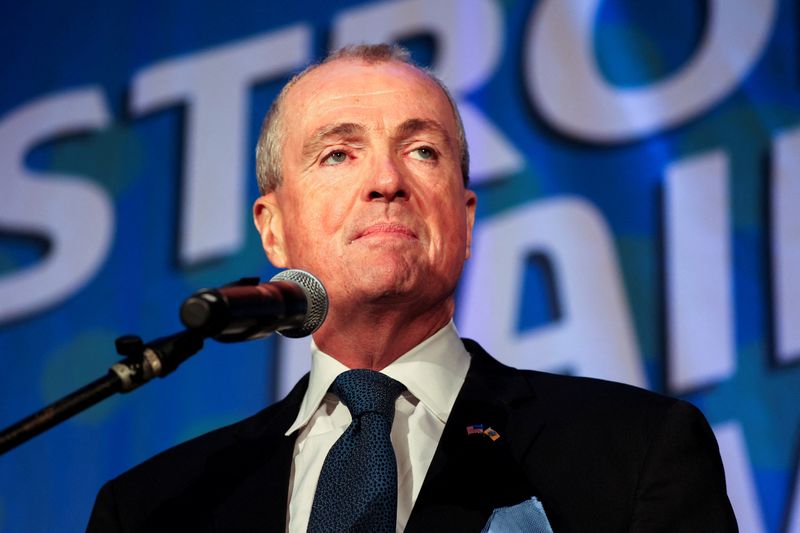By Brendan Pierson
(Reuters) - A federal judge on Tuesday blocked a New Jersey law authorizing the state's attorney general to sue gun manufacturers and sellers for endangering public safety, finding it ran afoul of a federal law protecting the gun industry from such claims.
The preliminary order by U.S. District Judge Zahid Quraishi in Trenton, New Jersey, means the law cannot be enforced while the judge considers a legal challenge by the National Shooting Sports Foundation (NSSF), a gun industry group. It comes a day after a different judge struck down parts of a separate gun control measure in the state.
"NSSF wholeheartedly welcomes this decision," said Mark Oliva, a spokesperson for the group.
A spokesperson for New Jersey Governor Phil Murphy said the governor was disappointed and confident the order would be reversed on appeal.
The now-blocked law, passed last June in the wake of a U.S. Supreme Court ruling expanding gun rights, allows the state attorney general to bring lawsuits accusing gun manufactures and sellers of creating a "public nuisance" that endangers health and safety - for example, through dangerous marketing or failing to prevent illegal trafficking.
Quraishi found that it was in "direct conflict" with the federal Protection of Lawful Commerce in Arms Act of 2005 (PLCAA), which shields gun makers and sellers from being sued over crimes committed with guns they legally sold.

The PLCAA has largely thwarted efforts to hold the gun industry legally responsible for gun violence, and Monday's ruling is an early test of some Democratic-led states' efforts to get around its shield. NSSF is also challenging similar laws in New York, where it lost its initial bid to block enforcement, and in Delaware.
Gun control has long been politically divisive in the United States, championed by Democrats and opposed by Republicans. Democratic President Joe Biden last June signed the first bipartisan national gun safety bill in 30 years, which was spurred by mass shootings in Texas and New York that killed more than 30 people, including 19 children at an elementary school.